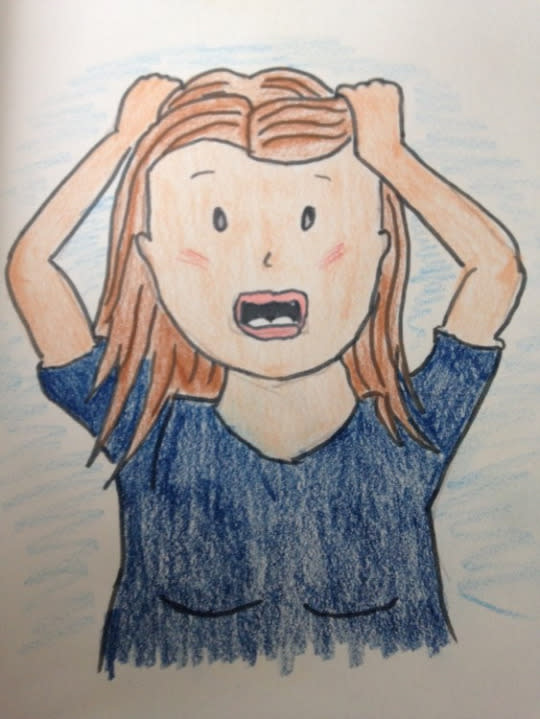The Problem With Saying ‘It Makes Me Want to Pull My Hair Out’

(Photo: Getty Images)
Stress. We all experience it at some point. The biting, nagging, foreboding feeling that puts us on high alert. The associated exhaustion, guilt and suffering. Stress can make us want to do things we wouldn’t normally do like eat junk food, punch things, cry or scream. You may have heard some people say the phrase, “It just makes me want to pull my hair out!” in order to convey the severity of their stress. I know I used to say it a lot when I was younger. Little did I know the connotations of that phrase and that it would actually come to haunt me in my early 20s.
Related: To the Woman on the Beach Who Thanked Me for Rocking a Bikini
I have trichotillomania, and it literally makes me pull my hair out. It is a torturousimpulse control disorder, in which I actually lose control of my actions and pull hair from my eyebrow, eyelashes and scalp. The pulling sensation is preceded by extreme, unbearable tension; the pulling causes a release. I am very open about my diagnosis in my daily life but that does not mean I am at peace with it. As hard as I try, the seemingly harmless actions and words of others can actually be hurtful, especially when someone tells me they could “just pull my hair out!”

(Photo: Sarah Smith)
Related: What the Starbucks Barista Didn’t Know When She Wrote ‘Smile’ on My Coffee
The phrase likely originates from people who observed those with trichotillomania or compulsive hair pulling, which has been reported as far back as ancient Greece. Repetitive use of a phrase within a society causes the phrases to be colloquially entrenched in culture. A phrase often becomes automatic or subconsciously related to expressing a certain emotion. Therefore, the problem isn’t that the phrase “pull my hair out” is common. The problem is it is most often used by people who will actually never experience the traumatizing compulsive disorder that is trichotillomania.
So please, the next time you hear yourself or anyone say it, remember how those words could affect someone around you. Trichotillomania isn’t always a visible illness, but it still hurts. Help eliminate the culture of stigma and appropriation by thinking before you speak and teaching others to do the same. On behalf of the entire trichotillomania community, I thank you.
Related: To the Couple in Line at CVS Who Saved My Life Without Knowing It
If you truly do mean what you say and actually pull your hair out when faced with a stressful situation, please seek the help of a medical professional. No one should have to suffer in silence.
By Sarah Smith
More from The Mighty
To the Strangers in Whole Foods Who Surrounded Me After News of My Father’s Suicide
